The Best Fertilizer For Tomatoes And Peppers
Tomatoes and peppers are two of the most popular vegetables to grow in home gardens. They are also two of the most nutrient-demanding plants, so it is important to fertilize them regularly in order to produce a bountiful harvest.
There are many different fertilizers available on the market, so it can be difficult to know which one is right for your tomatoes and peppers. In this blog post, I will discuss the different types of fertilizers available, as well as the best way to fertilize tomatoes and peppers.
Types of Fertilizer
There are two main types of fertilizers: organic and inorganic. Organic fertilizers are made from natural materials, such as manure, compost, and fish emulsion. Inorganic fertilizers are made from synthetic chemicals.
Both organic and inorganic fertilizers can be effective for fertilizing tomatoes and peppers. However, organic fertilizers are generally considered to be more beneficial for the soil and the environment.
Fertilizer Composition
When choosing a fertilizer for tomatoes and peppers, it is important to consider the nutrient composition of the fertilizer. Tomatoes and peppers need a balanced fertilizer that contains nitrogen, phosphorus, and potassium.
Nitrogen is essential for plant growth. It helps to promote leaf production and vegetative growth. Phosphorus is important for root development and flowering. Potassium is essential for plant health and disease resistance.
How to Fertilize Tomatoes and Peppers
Tomatoes and peppers should be fertilized every 4-6 weeks during the growing season. You can fertilize your plants with a liquid fertilizer or a granular fertilizer.
If you are using a liquid fertilizer, dilute it according to the package directions. Water your plants with the diluted fertilizer until the soil is moist.
If you are using a granular fertilizer, spread it evenly around the base of your plants. Water your plants well after applying the fertilizer.
Conclusion
Fertilizing tomatoes and peppers is an important part of growing a bountiful harvest. By choosing the right fertilizer and fertilizing your plants regularly, you can help them to reach their full potential.
Here are some additional tips for fertilizing tomatoes and peppers:
- Test your soil before you fertilize to determine the nutrient levels in your soil.
- Do not over-fertilize your plants. Too much fertilizer can burn your plants.
- Water your plants well after fertilizing.
- Mulch around your plants to help keep the soil moist and to prevent the fertilizer from leaching away.
By following these tips, you can help your tomatoes and peppers to grow healthy and productive.
Are you looking for the best fertilizer for your tomatoes and peppers? You've come to the right place! We've done the research and compiled a list of the top fertilizers on the market. Whether you're looking for an organic fertilizer, a slow-release fertilizer, or a fertilizer that's specifically designed for tomatoes and peppers, we have you covered.
We've also included a detailed guide on how to fertilize tomatoes and peppers, so you can be sure you're giving your plants the nutrients they need to thrive.
FAQ of best fertilizer for tomatoes and peppers
- What is the best fertilizer for tomatoes and peppers?
There are many different fertilizers that can be used for tomatoes and peppers, but some of the most popular include:
* Organic fertilizers: These fertilizers are made from natural materials, such as compost, manure, and fish emulsion. They are a good choice for gardeners who want to use organic methods.
* Inorganic fertilizers: These fertilizers are made from synthetic chemicals. They are typically more potent than organic fertilizers, but they can also be more harmful to the environment.
* Water-soluble fertilizers: These fertilizers dissolve easily in water and can be applied directly to the soil or to the leaves of plants. They are a convenient way to fertilize plants, but they can also be more expensive than other types of fertilizers.
The best fertilizer for tomatoes and peppers will depend on a number of factors, including the type of soil, the stage of growth of the plants, and the climate. However, a general rule of thumb is to use a fertilizer that is high in nitrogen and phosphorus. These nutrients are essential for the growth of tomatoes and peppers.
- How often should I fertilize my tomatoes and peppers?
The frequency of fertilizing will depend on the type of fertilizer you are using and the growth stage of your plants. However, a good rule of thumb is to fertilize tomatoes and peppers every 2-4 weeks.
- What are the signs of nutrient deficiency in tomatoes and peppers?
There are a number of signs that can indicate a nutrient deficiency in tomatoes and peppers. These include:
* Yellowing leaves: This is a common sign of nitrogen deficiency.
* Small, stunted growth: This can be a sign of phosphorus deficiency.
* Blossom end rot: This is a condition that causes the bottom of tomatoes to rot. It is often caused by a calcium deficiency.
If you notice any of these signs, you may need to fertilize your tomatoes and peppers.
- How do I apply fertilizer to tomatoes and peppers?
There are a few different ways to apply fertilizer to tomatoes and peppers. You can:
* Water-soluble fertilizer: This type of fertilizer can be dissolved in water and applied directly to the soil.
* Granular fertilizer: This type of fertilizer is spread evenly over the soil around the plants.
* Fertilizer spikes: These are small, pointed stakes that are inserted into the soil around the plants.
The best way to apply fertilizer will depend on the type of fertilizer you are using and the size of your plants.
Image of best fertilizer for tomatoes and peppers
- Compost
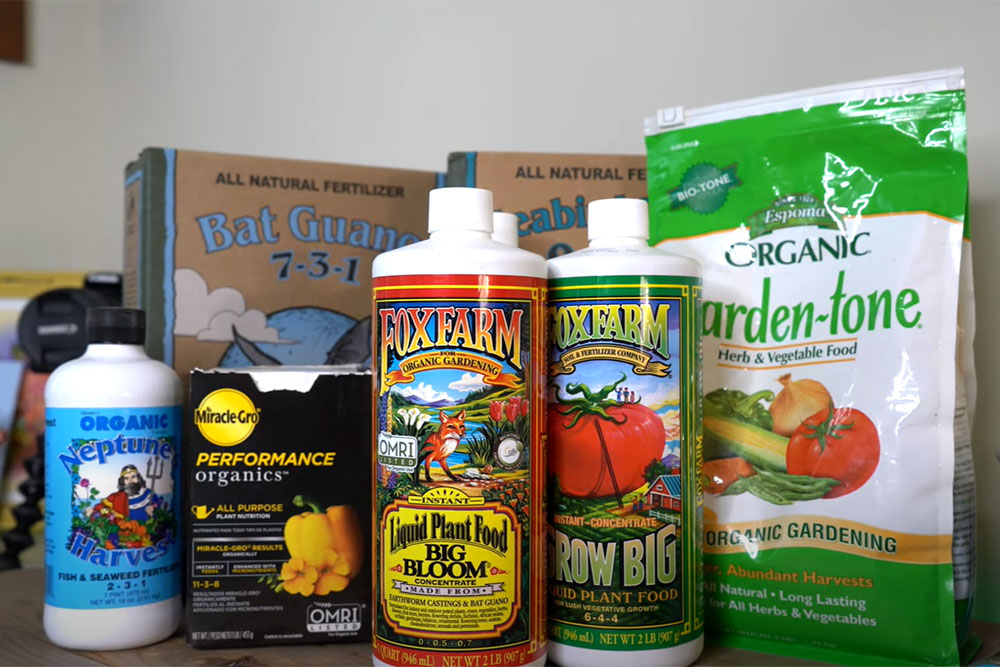 Compost is a great all-purpose fertilizer that is free to use. It can be made from kitchen scraps, yard waste, and other organic materials. Compost is high in nutrients and helps to improve the soil structure.
Compost is a great all-purpose fertilizer that is free to use. It can be made from kitchen scraps, yard waste, and other organic materials. Compost is high in nutrients and helps to improve the soil structure. - Fish emulsion
Fish emulsion is a liquid fertilizer that is made from fish scraps. It is high in nitrogen and phosphorus, which are essential nutrients for tomatoes and peppers. Fish emulsion can be applied to the soil or as a foliar spray.
- Blood meal
 Blood meal is a high-nitrogen fertilizer that is made from dried blood. It is a good choice for tomatoes and peppers that are not getting enough nitrogen. Blood meal can be applied to the soil or as a foliar spray.
Blood meal is a high-nitrogen fertilizer that is made from dried blood. It is a good choice for tomatoes and peppers that are not getting enough nitrogen. Blood meal can be applied to the soil or as a foliar spray. - Bone meal
 Bone meal is a high-phosphorus fertilizer that is made from ground bones. It is a good choice for tomatoes and peppers that are not getting enough phosphorus. Bone meal can be applied to the soil or as a foliar spray.
Bone meal is a high-phosphorus fertilizer that is made from ground bones. It is a good choice for tomatoes and peppers that are not getting enough phosphorus. Bone meal can be applied to the soil or as a foliar spray. - Kelp meal
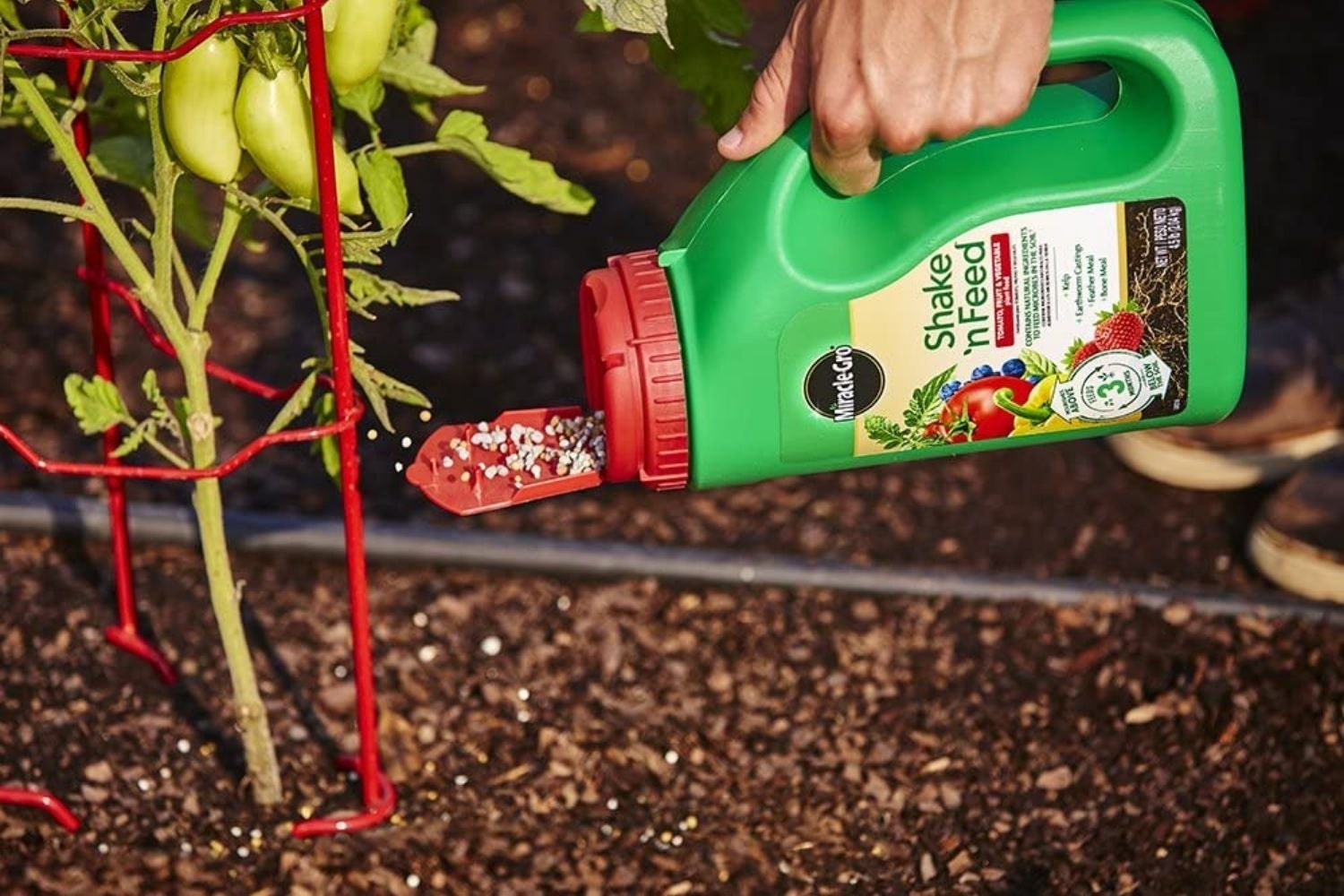 Kelp meal is a high-potassium fertilizer that is made from seaweed. It is a good choice for tomatoes and peppers that are not getting enough potassium. Kelp meal can be applied to the soil or as a foliar spray.
Kelp meal is a high-potassium fertilizer that is made from seaweed. It is a good choice for tomatoes and peppers that are not getting enough potassium. Kelp meal can be applied to the soil or as a foliar spray. - Wood ash
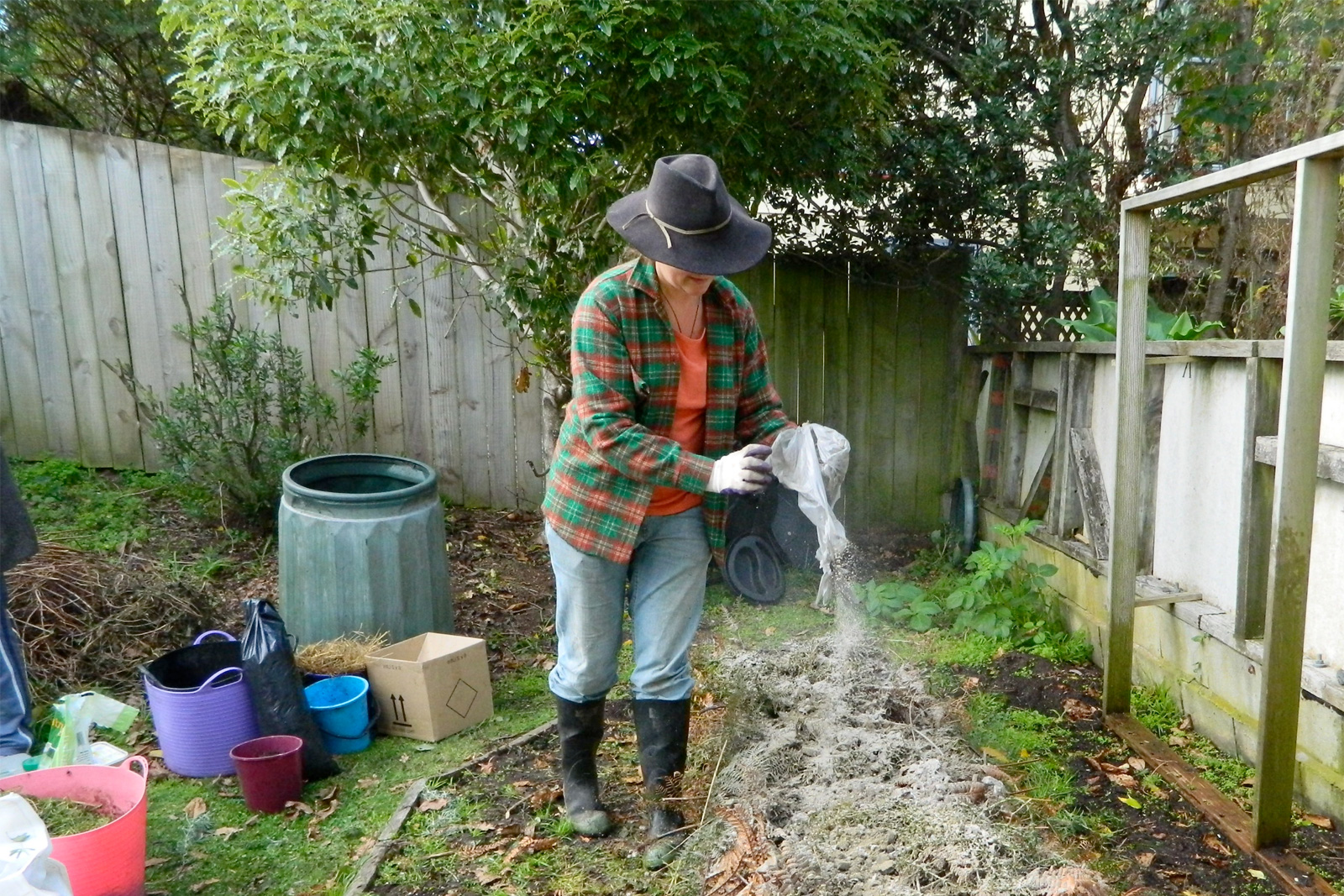 Wood ash is a high-potassium fertilizer that is made from burning wood. It is a good choice for tomatoes and peppers that are not getting enough potassium. Wood ash can be applied to the soil or as a foliar spray.
Wood ash is a high-potassium fertilizer that is made from burning wood. It is a good choice for tomatoes and peppers that are not getting enough potassium. Wood ash can be applied to the soil or as a foliar spray. - Coffee grounds
 Coffee grounds are a good source of nitrogen and other nutrients. They can be added to the soil around tomatoes and peppers to help improve the soil structure and provide nutrients.
Coffee grounds are a good source of nitrogen and other nutrients. They can be added to the soil around tomatoes and peppers to help improve the soil structure and provide nutrients. - Eggshells
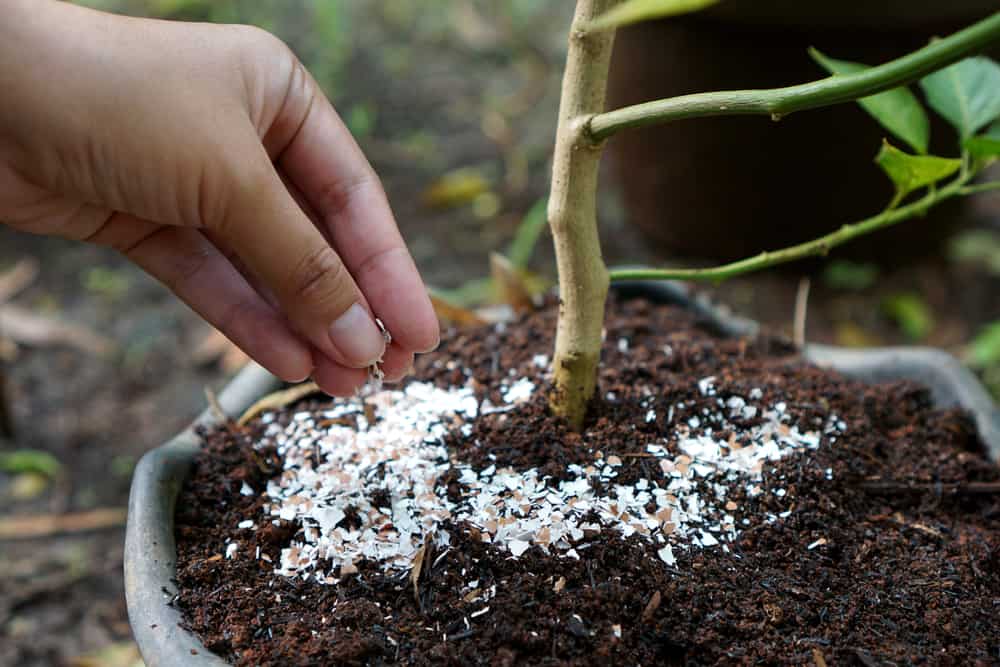 Eggshells are a good source of calcium. They can be crushed and added to the soil around tomatoes and peppers to help improve the soil structure and provide calcium.
Eggshells are a good source of calcium. They can be crushed and added to the soil around tomatoes and peppers to help improve the soil structure and provide calcium. - Yard waste
 Yard waste, such as grass clippings, leaves, and vegetable scraps, can be composted and used as a fertilizer for tomatoes and peppers. Composted yard waste is a good source of nutrients and helps to improve the soil structure.
Yard waste, such as grass clippings, leaves, and vegetable scraps, can be composted and used as a fertilizer for tomatoes and peppers. Composted yard waste is a good source of nutrients and helps to improve the soil structure. - Manure
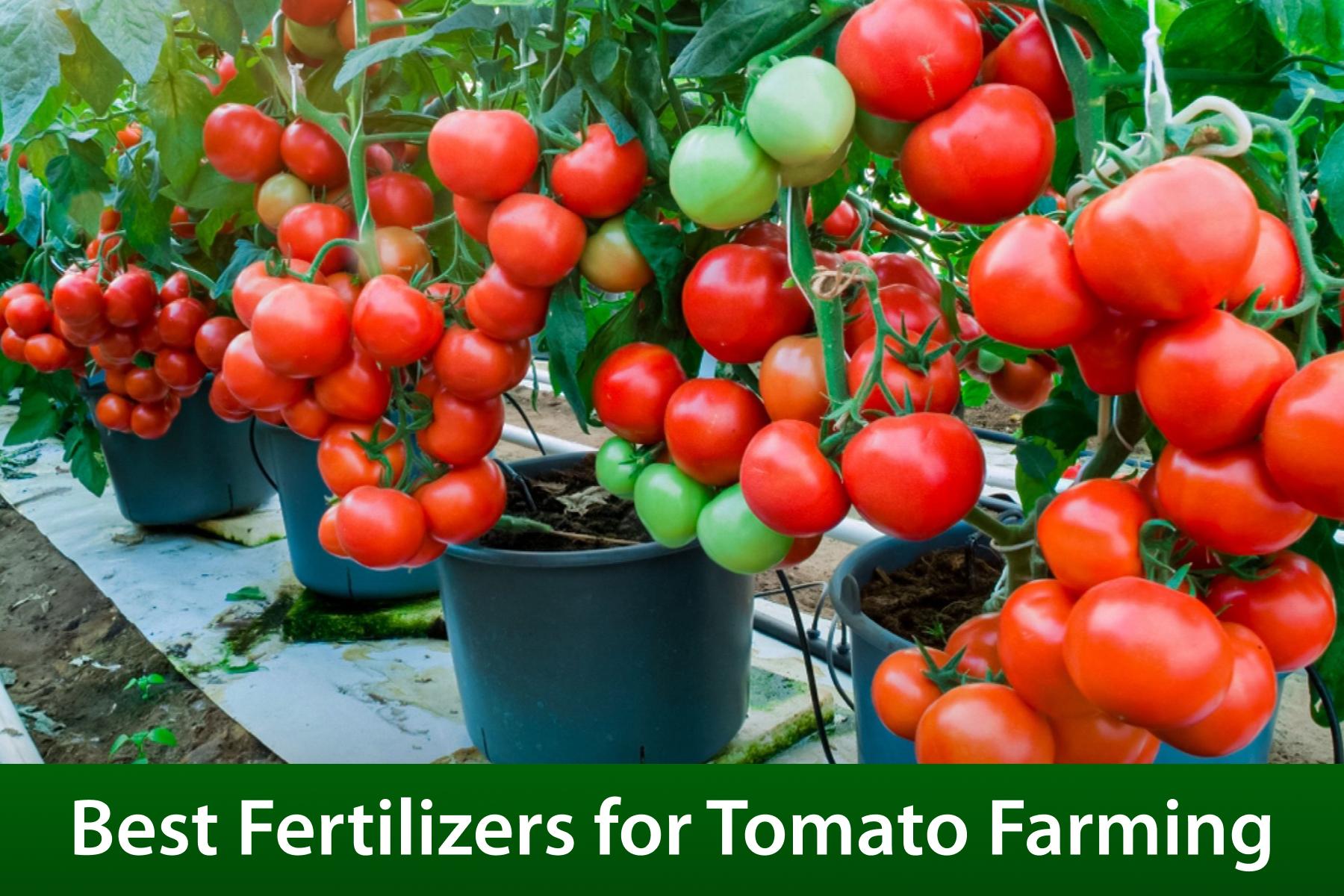 Manure is a good source of nutrients, but it is important to use manure that has been composted first. Uncomposted manure can contain harmful bacteria that can harm plants.
Manure is a good source of nutrients, but it is important to use manure that has been composted first. Uncomposted manure can contain harmful bacteria that can harm plants.
Post a Comment for "The Best Fertilizer For Tomatoes And Peppers"